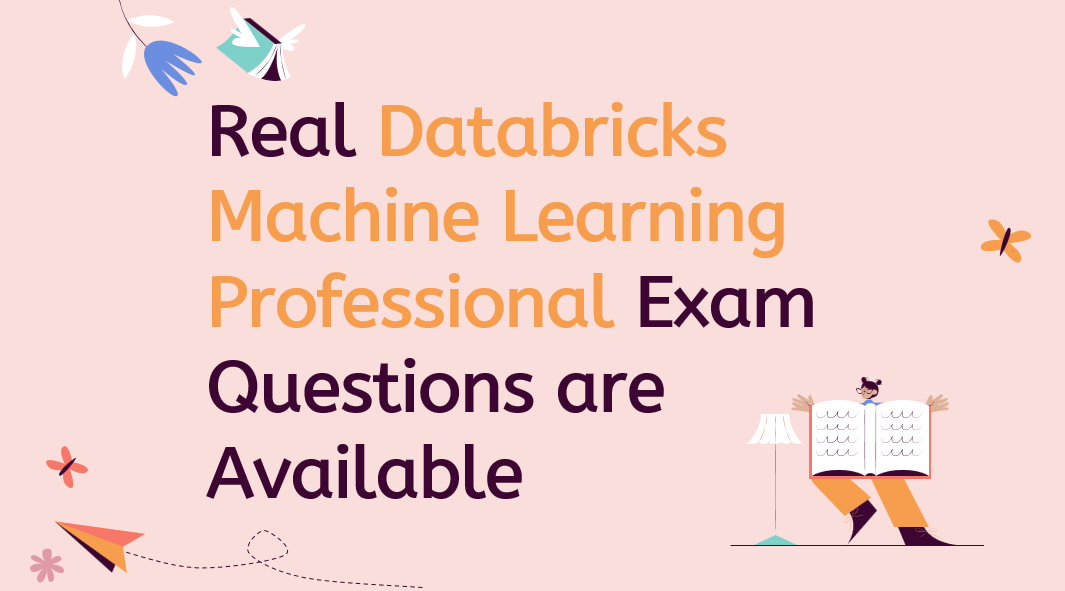The Databricks Certified Machine Learning Professional certification exam validate your ability to harness the power of Databricks Machine Learning for advanced tasks in a production environment. The Databricks Machine Learning Professional certification exam is a proctored assessment that consists of 60 multiple-choice questions. Test-takers are allotted 120 minutes to demonstrate their proficiency in key areas, with a registration fee of $200. The exam is conducted online, and individuals must adhere to a code of conduct to ensure the integrity of the certification process.

Databricks Machine Learning Professional Prerequisites and Recommended Experience
While there are no formal prerequisites for taking the Databricks Machine Learning Professional exam, candidates are strongly encouraged to undergo related training to enhance their chances of success. The recommended experience includes at least 1 year of hands-on involvement in the machine learning tasks outlined in the Databricks Machine Learning Professional exam guide. This hands-on experience is invaluable in preparing candidates for the challenges presented in the Databricks Machine Learning Professional exam.
Databricks Certified Machine Learning Professional Validity and Recertification
Upon successfully passing the Databricks Certified Machine Learning Professional exam, candidates earn a Databricks Certified Machine Learning Professional certification valid for two years. Recertification is required to maintain this prestigious status, ensuring that certified individuals stay current with the evolving landscape of Databricks Machine Learning.
Key Areas of Databricks Certified Machine Learning Professional Exam
Databricks Certified Machine Learning Professional exam is designed to evaluate candidates across four critical dimensions, each representing a distinct aspect of machine learning proficiency:
Experimentation (30%): Candidates are tested on their ability to conduct meaningful machine learning experiments using Databricks. This includes skills in tracking, versioning, and managing experiments effectively.
Model Lifecycle Management (30%): This section assesses the candidate's understanding of the complete machine learning model lifecycle. From development and training to deployment and maintenance, candidates are expected to demonstrate mastery in managing the entire lifecycle.
Model Deployment (25%): Implementing strategies for deploying machine learning models is a crucial skill in a production environment. Test-takers are evaluated on their capability to seamlessly deploy models, ensuring they perform optimally in real-world scenarios.
Solution and Data Monitoring (15%): Building monitoring solutions to detect data drift is a key competency tested in this section. Candidates should showcase their ability to implement effective monitoring strategies to ensure the ongoing performance and relevance of machine learning models.
Study Databricks Machine Learning Professional Real Exam Questions
Databricks Machine Learning Professional real exam questions from Testpassport are designed to assess your knowledge and skills in the field of machine learning using Databricks. These exam questions cover a wide range of topics, including data preparation, model training and evaluation, feature engineering, and deploying machine learning models in a distributed environment. By practicing and familiarizing oneself with these Databricks Machine Learning Professional real exam questions, individuals can gain a better understanding of the concepts and techniques required to excel in machine learning with Databricks. These questions provide valuable insights into the practical application of machine learning algorithms and help individuals prepare for the certification exam with confidence.
The Databricks Certified Machine Learning Professional exam is a comprehensive assessment that gauges your proficiency in advanced machine learning tasks using Databricks. Aspiring candidates should focus on building a strong foundation in experimentation, model lifecycle management, model deployment, and solution/data monitoring. With the right preparation and hands-on experience, success in this Databricks Machine Learning Professional exam opens doors to exciting opportunities in the dynamic field of machine learning.
